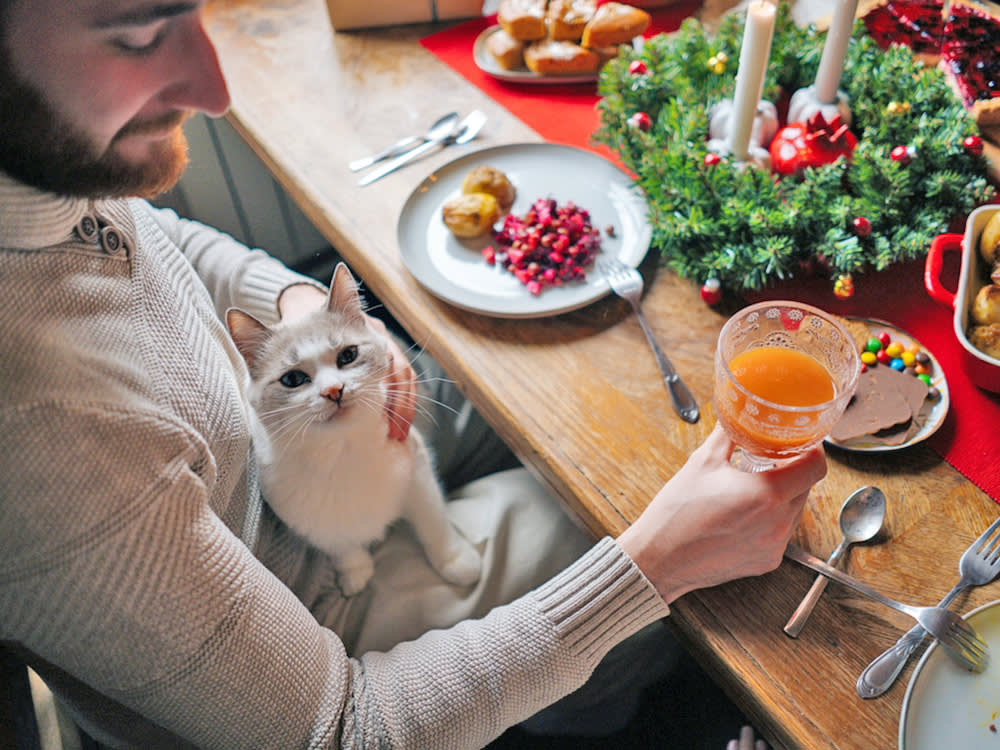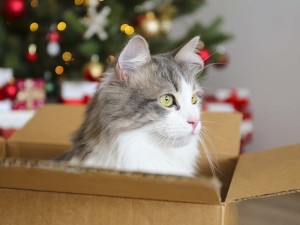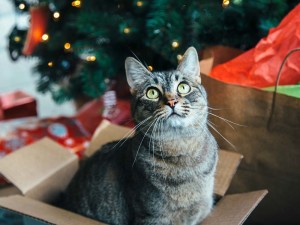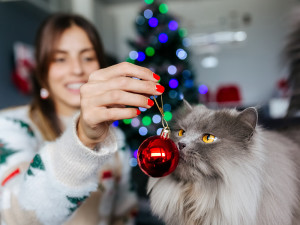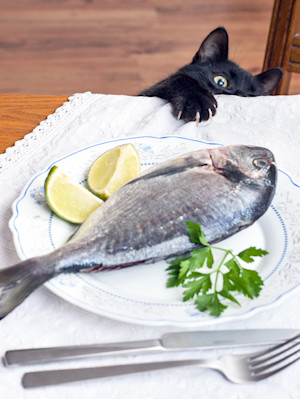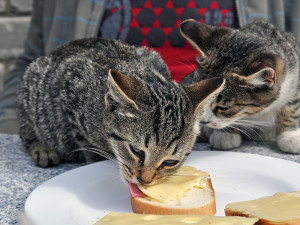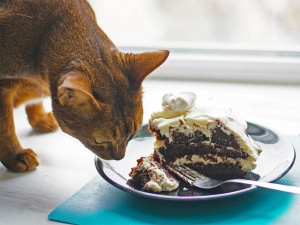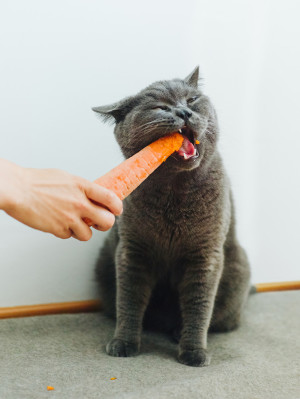Which Christmas Foods Can My Cat Eat?
From classic turkey to all the trimmings – can cats join in on the Christmas feast?
Christmas is a season filled with joy, celebration, and plenty of delicious food! While we gather around the table to enjoy a festive feast, our curious cats often linger nearby, hoping to sneak a taste. But do they have to stick to their usual kibble while we indulge in turkey and trimmings?
While some holiday foods can be harmful to our feline friends, there are a few treats they can safely enjoy with us. To help you make this Christmas safe and enjoyable for your cat, we’ve teamed up with Dr Joey Corrickopens in new tab to share a guide on what foods are safe and which ones to avoid when it comes to your feline friend.
Can cats eat turkey?
What would Christmas be without the turkey? It would be cruel not to share such festive meat with our beloved cats, right? Good news, cats can eat turkey. But, there are a few cautions to consider.
“Turkey should be plain, unseasoned, boneless and skinless,” says Dr Corrick. “It can be given as a treat alongside their main meals just to keep everything balanced. Generally, turkey is one of the safest and healthiest meats for your cat so cooking a little plain piece for them is a lovely idea.”
Can cats eat Christmas ham?
Surely the greatest Christmas food? Ham is not toxic to cats, but it is high in salt. Although cats are obligate carnivores and need protein for a happy healthy life, ham just isn’t the best meat choice.
“Cats can eat tiny pieces of ham and it’s likely not to cause harm. However, I would avoid giving it to them if you can – it’s high in salt and isn’t the healthiest for cats,” says Dr Corrick.
Can cats eat stuffing?
Stuffing is a staple Christmas side and is especially delicious when filled with onions, garlic, herbs and all things yummy. However, many of these foods are in the allium familyopens in new tab and are toxic to your cats if ingested.
“It’s quite rare to get stuffing without onion and garlic – both ingredients you should never give to your cat. They cause your cat’s red blood cells to break down, which can be life-threatening. It’s best to leave this delicious side aside, unfortunately.”
Can cats eat roast potatoes?
Unlike dogs, cats don’t need carbohydrates in their diet so potatoes aren’t necessarily good for cats.
“Cats can eat potatoes occasionally,” says Dr Corrick, “peeled and roasted potatoes without added spices or salt won’t harm your cat and as long as they are given as a small treat, they should be OK.
“Cats also don’t chew like us omnivores, so the pieces should be small enough to swallow and prevent any choking.”
Can cats eat parsnips?
Parsnips are a classic Christmas veggie, and luckily, they’re safe for cats in small amounts.
“Plain, cooked parsnips can be given to your cat as a tiny treat,” says Dr Corrick. “Just make sure they aren’t seasoned with salt, butter or other spices. While cats don’t need veggies in their diet, a nibble on a plain parsnip won’t hurt them.”
Can cats eat mince pies?
Sorry to disappoint, but mince pies are a no-go for cats. The raisins and currants found in traditional mince pies are toxic to cats and can cause serious health issues.
“Even a small amount of dried fruit can cause kidney failure in cats,” warns Dr Corrick. “So, while you enjoy your Christmas dessert, keep your mince pies well out of your cat’s reach.”
Can cats eat chocolate?
This one's an easy no. Chocolate contains theobromine and caffeine (not a great mix) which is toxic to cats and dogs. Even a small piece of chocolate can cause vomiting, seizures or worse.
“Chocolate is one of the most dangerous human foods for cats,” says Dr Corrick. “Always keep chocolate and any desserts made with it away from your feline friends.”
Can cats eat cheese?
Cheese is a tricky one. While not toxic, many cats are lactose intolerantopens in new tab, meaning dairy products like cheese can cause stomach upset.
“Some cats might tolerate a small bit of cheese, but it’s generally best to avoid it,” advises Dr Corrick. “If you do give your cat a little cheese, make sure it’s a very tiny piece and watch for any signs of discomfort.”
Can cats eat Brussels sprouts?
Believe it or not, Brussels sprouts are safe for cats as long as they’re plain and cooked. That said, don’t expect your cat to be too thrilled about this veggie!
“Brussels sprouts aren’t harmful to cats, but they’re not a food cats are likely to enjoy,” says Dr Corrick “If your cat shows interest, a small, plain piece won’t hurt, but it’s definitely not a must-have treat.”
Christmas is a time for feasting and celebration but it’s important to be mindful of what holiday treats you share with your cat. While plain turkey or the occasional veggie is safe in moderation, chocolate, mince pies and stuffing can be extremely harmful.
“Any novel food should be introduced carefully as unknown allergies may arise,” says Dr Corrick. “Gastrointestinal upsets are also likely if the food differs significantly from their regular diet or if they consume too much too quickly.”
By sticking to the safe options and avoiding risky foods, you can enjoy an emergency-free Christmas. And remember if you think your cat has eaten anything toxic, seek veterinary advice immediately.
